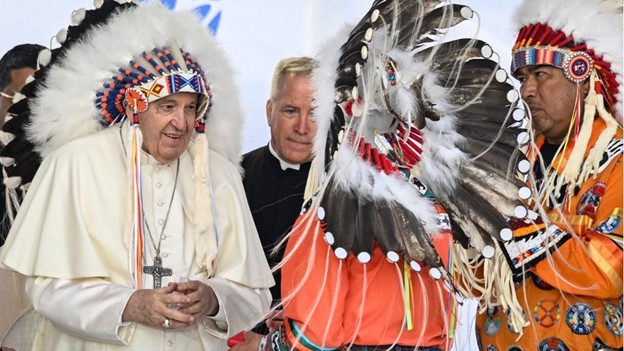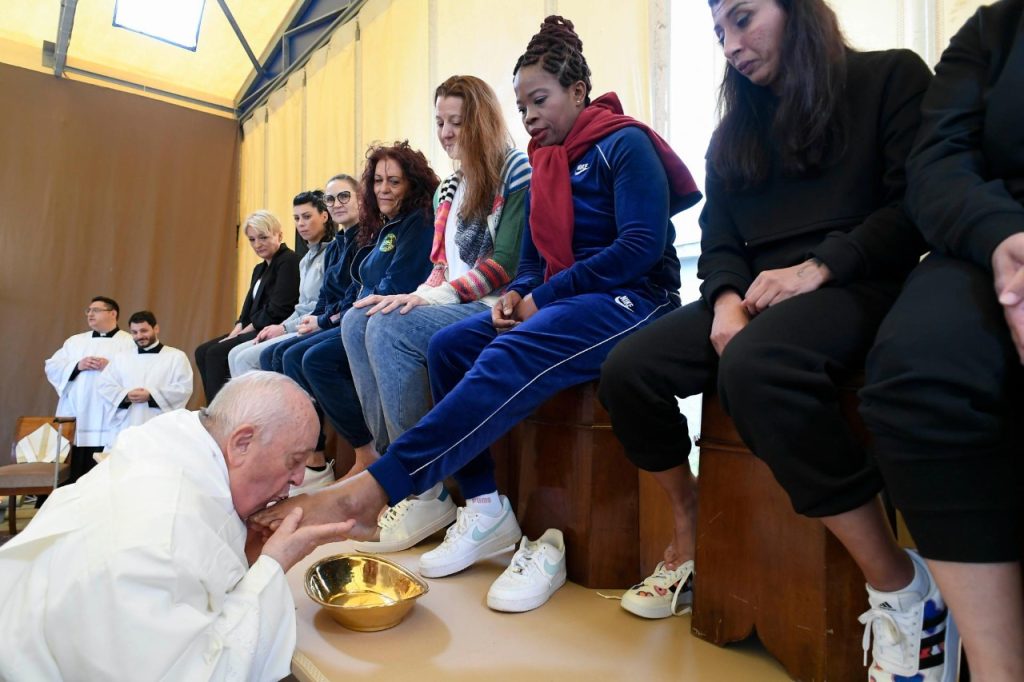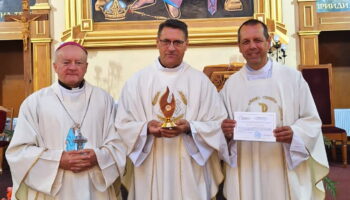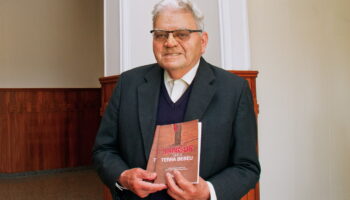
Franciscus, or Pope Francis, a courageous leader who sacrificed himself without holding back, in the service of Christ Jesus, his Church and all humanity. Since he was elected to lead the Catholic Church, the priorities of his mission have been: preference for the poor, the fight for justice and peace, the care of the environment and the building of human fraternity, embraced in the mercy of God, a mercy that has no limits.
By Francesco Bernardi *
A prophet of our times
It was March 13, 2013, when the College of Cardinals elected Jorge Bergoglio as the successor of Saint Peter, the first Pope in the history of the Church.
The new Pope took the Latin name “Franciscus”, which means “one who speaks clearly” and “a free man”.
During the feast of Saint Joseph, the husband of the Virgin Mary, on March 19, 2013, Pope Francis was officially installed. 12 years have passed. On Easter Monday, April 21, 2025, Cardinal Kevin Farrell sadly announced the death of Pope Francis, aged 88, which occurred that same Monday.
In his statement Cardinal Farrell said: “Pope Francis was a leader who dedicated himself, without reserve, to the service of Christ Jesus and his Church. About three hundred thousand people, from many nations, flooded St. Peter’s Basilica to express their gratitude to Pope Francis. They waited for hours and hours in lines of up to 500 meters, and more. Many said: “We are really tired, and the rain has also bothered us. But we could not help but show our love for this Pope, a prophet of our times, a defender of the poor and a champion of peace and the environment”.
Who is the poor?
“The poor are the trust and wealth of the Church,” said Pope Francis. The poor are the special targets of the good news of salvation. The poor in condition and in wealth. The poor are also:
– those who are immersed in the illicit trade and economy of humanity;
– those who are humiliated and abused in their dignity and rights;
– refugees, migrants and people seeking political asylum, without finding it.

The Jubilee of Divine Mercy (December 2015 – November 2016) was a precious opportunity to make God’s mercy the focus of reflection on the life and mission of the Church. God’s mercy is an opportunity for all people to examine their consciences, to ask themselves: “Is my conduct in harmony with the Gospel, proclaimed and witnessed by mother Church?”
Bridges, not walls
Justice and peace are indeed among the priorities of the late Pope Francis.
The Church should be a model of global solidarity in spiritual and temporal life, against economic policies and strategies that exclude, oppress and discriminate against the poor.
Social stratification is a source of contradictions, conflicts and hostility. The world needs builders of bridges that bring people together, not walls of separation, by focusing on dialogue about truth and transparency, by valuing dignity, respect and human rights.
May all people be builders and instruments of peace in the world; prophets of mercy and good Samaritans who dare to serve the poor with humility, enthusiasm and heart, recognizing that the Church is the sacrament of salvation, unity and solidarity.
The “World Day of the Poor” is a fruit of the Year of Mercy. It was first celebrated in 2017, with Pope Francis as the special promoter. “Since ancient times, the Church has listened to and responded to the cry of the poor and needy. For this reason, the Church chose seven deacons, who were known for their goodness, full of the Spirit and wisdom, to serve the poor” (cf. Acts 6:1-7), he said.
The environment, the home of all
Let us recall Pope Francis’s apostolic letter “Laudato Si” (Praise be to God). It is also a document on the care of the environment, the home of all humanity. In that letter, the Pope emphasized three main points:
– the importance of focusing on ecological conversion;
– the characterization of the fundamental values of the Gospel of justice, peace and fraternity;
– an invitation to all people to stand firm in caring for the environment, since its consequences would be a grave loss for humanity.
From the beginning, the mission of the late Pope Francis has emphasized the importance of the Vatican dialogue to be anchored in peace, by combating the scourge of hunger and poverty in the world; by protecting and caring for the environment, since millions of people are affected by the consequences of climate change, unemployment and the development of human solidarity.
The flood of war
Today, wars are flooding from Ukraine to Gaza, from Congo D.D. to Sudan and beyond. Wars that bring disaster to people and their property; wars that cause environmental destruction and destroy people’s hopes.
In this dangerous situation, honest and open dialogue breaks down the walls of spiritual and intellectual separation; it opens the way for forgiveness and fosters reconciliation.
Dialogue is a tool of justice that stimulates and strengthens the bonds of the international community by emphasizing peace.
Religious, ecumenical and cultural dialogue should embrace tolerance and be oriented towards a process of witness as a tool for building fraternity, love and the common good.
These are also the objectives of Pope Francis’ apostolic letter “Fratelli Tutti” (All are brothers). The letter encourages the construction of fraternal solidarity, coordinated by the principle of solidarity, by emphasizing the priorities of dignity, respect and human rights. This is a concept that embraces family, social, national and international life.
To achieve these goals, there is a need to build and maintain a philosophy of fraternity as a tool for working in international arenas, to help find solutions to the problems that afflict the international community. This is a great help in combating the challenges of modernity.
A saint among us?
Francis is a great leader of the missionary Church. His 47 journeys around the world (also in a wheelchair) are an immeasurable testimony to his missionary work. Fundamentally and characteristically, the Catholic Church is a missionary community, whose doors and windows are always open to welcome all.
My dear readers, will Francis be declared a saint? That will also depend on the miracle that he performs. But, after Franciscus’ funeral service in St. Peter’s Basilica, the sitting together of President Trump and President Zelensky in the church, alone, wasn’t it a miracle of the late Franciscus? Let us continue praying for his soul.
* Fr Francesco Bernardi, IMC, former Enendeni Magazine Director in Tanzania.



